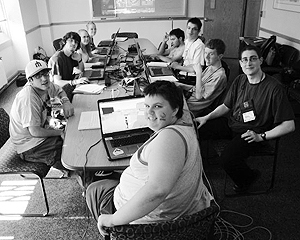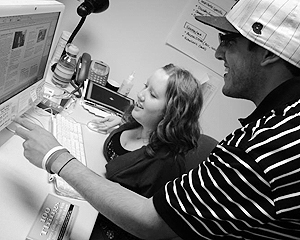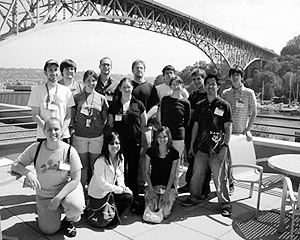AccessComputing Internships (AccessComputing News - Jan 2010)


The Alliance for Access to Computing Careers (AccessComputing) has funds available to support training, experiential learning, and information technology (IT)-related activities nationwide. The goal is to increase the number of people with disabilities, including post-9/11 veterans, successfully pursuing computing careers.
Led by the Department of Computer Science & Engineering and DO-IT (Disabilities, Opportunities, Internetworking, and Technology) at the University of Washington, AccessComputing is supported by the National Science Foundation (Grant No. CNS-0540615, CNS-0837508, and CNS-1042260). Any opinions, findings, and conclusions or recommendations expressed in this material are those of the authors and do not necessarily reflect the views of the National Science Foundation.
AccessComputing engages stakeholders through a variety of ways, including Communities of Practice (CoPs). CoP members communicate using email and other electronic tools. They share perspectives and expertise and identify practices that promote the participation of people with disabilities in computing fields. Five project CoPs are described below.
For a person with a visual impairment, a computer can initially present some accessibility challenges. However, there are a wide variety of software products available to help people of all abilities access and use a computer. One of the more popular products for people with visual impairments is a screen reader that uses a digital voice to read aloud text that appears on a computer screen. While a very helpful tool in making a specific computer accessible, screen readers are not always installed on public computers in libraries and Internet cafés.

Five deaf and hard-of-hearing students from California, Iowa, Minnesota, Pennsylvania, and Washington attended a one-week Summer Computing Experience at the University of Washington. This was an opportunity for high school students to experience what computing is all about. They went on field trips to Adobe, Google, Valve, and Microsoft's Home of the Future and had fun learning about Seattle on the famous Ride the Ducks tour.

Website
Connect to AccessComputing project information, resources, and materials.
Knowledge Base
This fall, I spoke about accessible technology in my "New Directions in Accessible Computing" lecture at North Carolina State University (NCSU). My talk was part of the Triangle Computer Science Distinguished Lecturer Series. It was telecast to Duke University and the University of North Carolina.
In my talk, I described ways that people with disabilities can use technology to create or configure their own accessibility solutions. This non-paternalistic approach respects the ability of persons with disabilities to determine their own destinies.